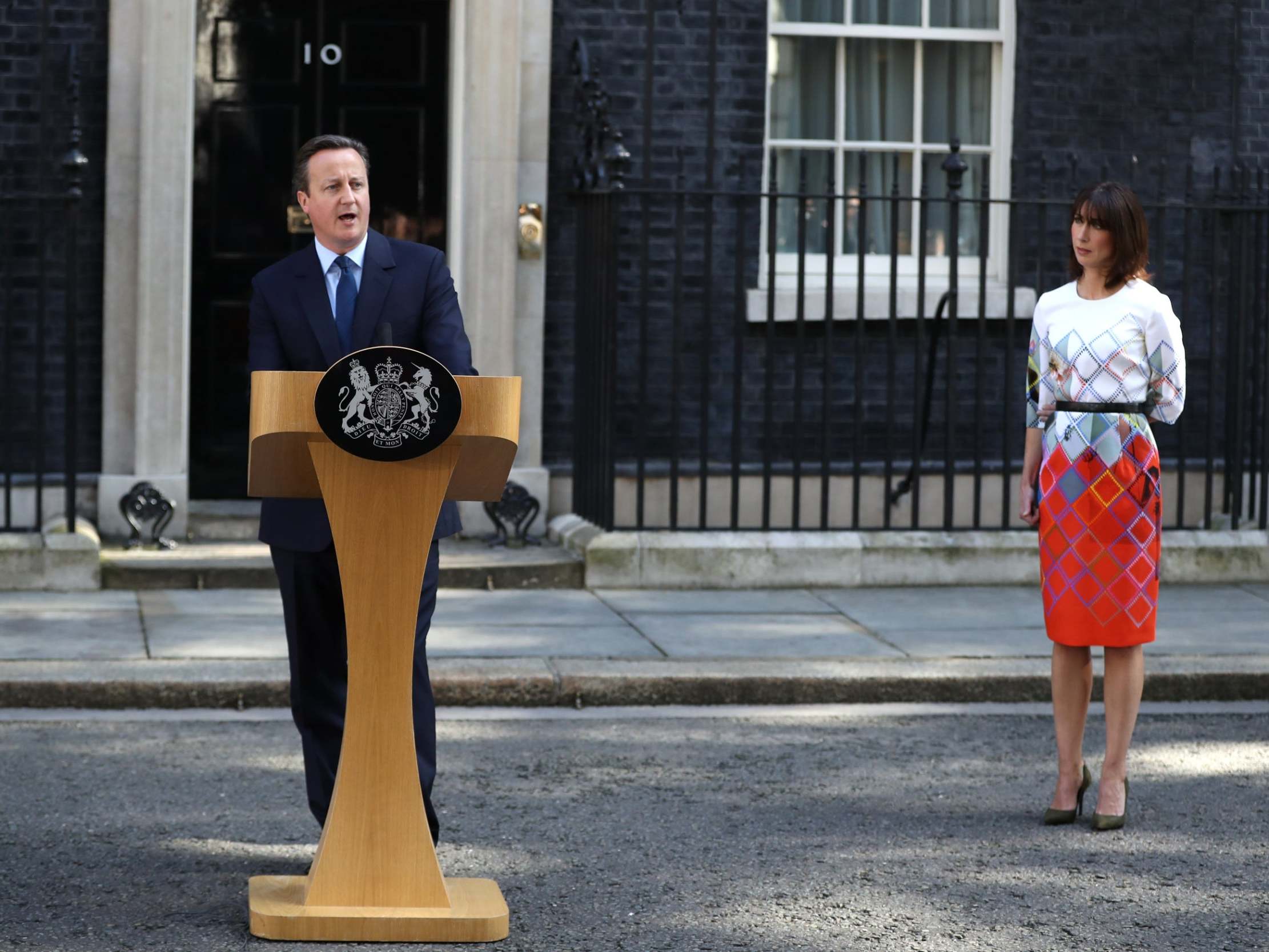There’s only one man to blame for the terrible mess we’re in
By depriving his successors of the ability to go to the country at a time of their own choosing, David Cameron introduced an element of chaos to the UK’s constitution and its ramifications are still unknown


Britain is in the throes of a political crisis of a kind that has never been seen before. A prime minister who has lost every single vote he has faced in the Commons and has thrown away his own majority by expelling a score of his most experienced and respected MPs. A government defeated on the central plank of its policy platform and ordered by MPs to do something – extend Brexit negotiations – which the prime minister has explicitly stated he will not countenance. A bewildered phalanx of Conservative MPs bullied by an unelected adviser who is unable to confirm whether he is even a member of the party himself.
Under normal circumstances, this would mean just one thing: the collapse of the government and a swift election in which the hapless PM would be roundly defeated and the opposition would sweep into power. Instead, we see the Tories desperately seeking a way to be removed from office so they can capitalise on polls suggesting Boris Johnson could restore his majority by going to the country, while Labour withholds its support for the election it has spent the past two years demanding.
Many in Westminster put the blame for this topsy-turvy politics on one man – David Cameron – and the unintended consequences of his tinkering with the UK’s constitutional arrangements.
First, the former PM relied to a greater extent than any of his predecessors on referendums as a means of resolving thorny political issues; voting reform, then Scottish independence and finally, and fatefully, the Europe question. By doing so, he foisted on MPs an unignorable instruction from the British people to push through a radical change, which most of the elected representatives in Westminster believe will be damaging to the national interest, without any sort of plan of how to achieve it.
This destroyed the premiership of his successor, Theresa May, who voted Remain and never seemed enthusiastic about the prospect of life after Brexit. More surprisingly, it seems possible it could fatally undermine Johnson, Brexit’s biggest cheerleader.
Second, Cameron concocted legislation for fixed-term parliaments with the single aim of holding together a coalition government which, at the time, seemed a perilous innovation in need of artificial support, but now, in retrospect, looks like a beacon of stability. By depriving his successors of the ability to go to the country at a time of their own choosing – even when they have lost the confidence of the house and are unable to pass the most basic features of their programmes – he introduced an element of chaos to the UK’s constitution, of which the full consequences are still difficult to predict.
When we finally get an election (which we will) and a new government in place, it seems likely that one of its most urgent tasks will be to unravel this mess and try to find a more rational way of running the country’s politics.
Yours,
Andrew Woodcock
Political editor
Join our commenting forum
Join thought-provoking conversations, follow other Independent readers and see their replies
Comments